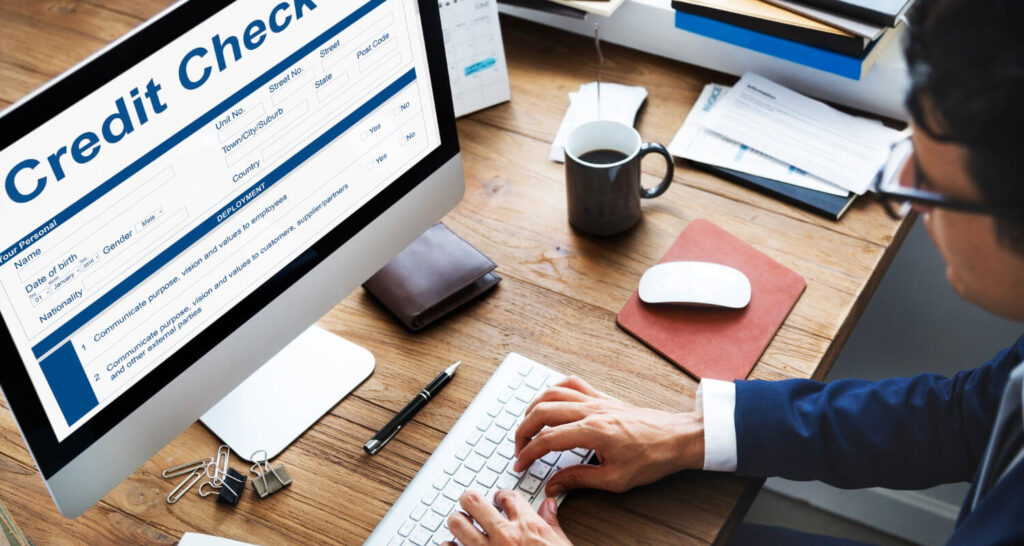For any person or any firm, bankruptcy is one of the most challenging business decisions to make. They simplify legal procedures that are designed to assist people with too many outstanding debts and who need a new beginning. To make things a little more complicated, it is worth mentioning that sometimes you might owe money to the Small Business Administration (SBA).
SBA loans require guarantee and collateral and it makes borrowers uncomfortable making discussions on bankruptcy. Thus, does bankruptcy clear SBA loans? The short answer: it has to do with several things. In this article you are going to learn how SBA loan plays out together with bankruptcy; the types of bankruptcies; the involvement of personal guarantees; and so on.
What Is Bankruptcy?
Bankruptcy is a legal process through which individuals or businesses can discharge or repay their debts while using the Federal Court as their shield. It is an instrument created to allow people facing urgent monetary difficulties to start anew despite the fact that it has dark sides which long-term effects include a decrease in credit scores. In the United States, different types of bankruptcy exist, but the most well-known types are chapter 7, chapter 11, and chapter 13.
What Are SBA Loans?
SBA loans are actually loans that are made by conventional commercial banks but the federally funded SBA gives a guarantee to the same. This guarantee minimizes the risks that a lender is exposed to hence enabling many small businesses to get funding. These loans are offered for business purposes but with certain conditions such as a personal guarantee or agree to provide collateral.
There are various types of SBA loans, such as:
- 7(a) Loans: The most frequently used type to satisfy all kinds of business demands.
- 504 Loans: These are products that are used for acquiring assets that are fixed such as land and buildings or machinery.
- Microloans: Less amount of cash needed for a loan which is normally below $50 000 such as start-ups and small businesses that require less money.
Types of Bankruptcy and How They Affect SBA Loans
- SBA loans and bankruptcy: The effect of the process is preserved here and depends on the type of bankruptcy proceeding. Let’s break down how each type affects SBA loans:
- Chapter 7 Bankruptcy: A Chapter 7 case is an excellent example, where most of the nonpriority and unsecured debts are wiped out. In the same respect, if your SBA loan is secured by collateral or personal guarantee, you might find the situation differently. Secured SBA loans may be associated with the compulsory sale of the collateral.
- Chapter 11 Bankruptcy: This position of bankruptcy is more of a reorganization than the actual form of bankruptcy. In this case, some businesses may be in a position to repay through restructuring of SBA loans to pay in installments while the business is running to generate income.
- Chapter 13 Bankruptcy: Unlike Chapter 13, this type of bankruptcy also lets you retain your property and develop a paying-back schedule; the SBA loan may be included in the schedule.
SBA Loans and Personal Guarantees
SBA loans have a personal guarantee which means that the borrower is on the hook should the business fail to repay the loan. This causes an extra problem, most especially during the process of bankruptcy. In the event that the business goes under through a legal process such as bankruptcy personal assets that include investments, a home, car, savings, or any personal property is still vulnerable.
Failure to pay back the loan amount, the mentioned personal assets may be seized by the lender. It is important to understand how personal guarantees work before applying for an SBA loan because they can affect a business for many years afterward.

Does Bankruptcy Clear SBA Loans
Secured vs. Unsecured SBA Loans in Bankruptcy
- Secured loans:
Secured for instance by real estate equipment or inventory, that is, secured by the assets of the borrower. In the event that you fail to pay the loan, the lender has a right to repossess the valuable item pledged. In a Chapter 7 bankruptcy, this collateral may be disposed of to repay the debt.
- Unsecured loans:
These are not usually secured by specific collateral and more of them are likely to be discharged under the Chapter 7 bankruptcy, so long as they are not guaranteed personally.
The Role of Collateral in SBA Loans
The borrower’s collateral is also used in securing SBA loans since it serves as a backstop to the lenders. Normally, collateral can be land, machinery, or goods that underpin the credit. This form of security gives the lender a right to take this asset in case the borrower is unable to pay back the loan.
This makes SBA loans more available for businesses since collateral makes the risk of the lending company lower. However, it also means borrowers need to be careful; losing collateral may affect the operations of a business and its solvency.
Negotiating with SBA Lenders During Bankruptcy
Dealing with SBA lenders in bankruptcy offers a chance of reprieve to small businesses that are experiencing difficulties. One must be very careful when it comes to the issue of finance and discuss this affair and it is good to look for another way such as renegotiation of the loan or coming up with another mode of paying an amount of money.
Most of the lenders will agree to proceed with the agreed-upon amount even if they think it would be mutually beneficial for you to continue borrowing from them. Negotiation can enable you to avoid shutting down your business while at the same time dealing with your debts in a more efficient way.
Alternatives to Bankruptcy for SBA Loan Holders
Here are three short alternatives to bankruptcy for SBA loan holders:
- Debt Restructuring: Talk to your lender regarding changing certain conditions, such as interest rates and payment duration, to help pay on credit.
- Refinancing: To enhance cash flow, and decrease monthly payments you refinance your SBA loan to secure better conditions or a lower interest rate.
- Payment Plans: Negotiate with your lender to allow you to make a lower payment first then seek better employment to enable you to meet the balance without going for bankruptcy.
How Bankruptcy Affects Future Borrowing
Bankruptcy affects future borrowing in the sense that the record appears on one’s credit report for about a decade. This can prove embarrassing whenever trying to get new loans such as the SBA loans since lenders consider bankruptcy a black mark in your credit score.
They may also be higher due to the perceived risk a party takes when putting their money in the borrowing firm’s account. However, after some time, and when you repay your credit reliably, perform on-time payments, and lower your credit utilization ratio, you are likely to rebuild your credit and qualify for more credit lines in the future.
Seeking Legal and Financial Advice
Thus, consulting a lawyer and/or an accountant is especially important for all businesses that have experience with SBA loans and possible bankruptcies. Business advisors can assist you in understanding what situations you are in and what personal guarantees and collateral can mean.
A bankruptcy lawyer can explain all the steps taken through the process to you whereas a financial planner can suggest how to handle the debts and whether there exist other options. By taking this step, you can equip yourself with enough information to go around making effective decisions, guaranteeing the security of your assets, and creating a strategy that will suit your financial strategy.
Conclusion
Therefore, anyone interested in SBA loans and bankruptcy should agree that these circumstances present certain considerations that have to be made. This breathing space does not eliminate all types of SBA loans, however, if personal guarantees or assets are pledged by the debtor. Learning other approaches, which include debt renegotiation, refinancing of loans, or developing an understandable payment plan can solve problems without the adverse effects that accompany bankruptcy.
Lastly, it is always advisable to consult appropriate specialists in order to avoid a number of mistakes for your personal financial planning, or your overall financial stability in the future as well as to fulfill your responsibilities towards your business.
For how many years does bankruptcy appear on a credit report?
Bankruptcy does come off a credit history of anywhere from 7- 10 years, depending on the kind of bankruptcy an individual declared.
What happens to business after bankruptcy?
It depends on the type of bankruptcy. While Chapter 7 results in the closure of the business, Chapters 11 and 13 enable you to run the business by paying the debts under a different structure.
Is there any way to avoid bankruptcy of SBA loans?
Yes, you have the chance to look at debt restructuring, refinancing, or even speaking to the lender before having to go to bankruptcy.

